Bred as one of Europe’s best hunting dogs, the Spinone Italiano is versatile in the field, and loving at home. These dogs may look like grouchy old men, but they are more often friendly and politely playful. Read on to learn more about the Spinone Italiano.
Description of the Spinone Italiano
These dogs look like hunting dogs – earthy colored, and wiry haired. Nowadays, this breed may still excel in the field, or live as a family pet. Regardless, they are sporting dogs through and through, and love having jobs.
They are natural looking, a far cry from the fuss of a poodle. This breed has long, shaggy hair that hides most of the lean muscle underneath. It’s not quite as wiry as many field dogs, but still gets the job done, protecting the Spinone Italiano from rough conditions.
This dog’s beard and eyebrows accentuate happy eyes, and the breed can come in a variety of colors. Most common are the brown or orange roan, and white.
Life Expectancy and Size
The Spinone Italiano has a life expectancy of 10 to 12 years, though healthy dogs may live even longer. Keeping them fit and at the proper weight may be the best protection against the diseases of aging.
These are medium to large dogs, measuring between 22 and 27 inches at the shoulder. Sturdy dogs, they weigh in at between 64 and 86 pounds.
Protective Ability
This breed has some watchdog tendencies. They are alert, and do bark if they’re suspicious. However, they are much friendlier and less over the top when it comes to their duties than many other breeds. Spinone Italiani do not make great guard dogs.
Training
The good news is that this breed is intelligent, and very responsive to rewards in training.
Like many dogs, they work better for rewards, than simply to please their owners. They are easily motivated with food or play (especially games that tap into their hunting instinct), and skilled trainers can leverage this motivation for training. This same independence shows up in their hunting style as well, which is much less controlled, and more instinctive than many other breeds.
The Spinone Italiani enjoy learning new jobs, and are not limited to hunting.
Energy Level
These are active dogs. They were bred for the field, and even if they no longer hunt, most crave the stimulation that comes with a job.
However, unlike some other sporting dogs, this breed can also enjoy relaxed time at home. They are social and kind, preferring to stick around people even if the people are watching a movie on the couch.
What Living with a Spinone Italiano is Like
There’s a reason this breed is gaining popularity. Spinone Italiani have sweet personalities, and can make loving family pets. They are friendly with strangers and other dogs, especially if they have been properly socialized. In fact, they thrive off human interaction, and can become anxious if left alone.
It’s best if this breed has a job to do. This could be the obvious hunting, or something new like agility classes. Giving them enough exercise of body and mind will make them more happy pets at home.
These dogs also have a mind of their own. They aren’t difficult out of principle, but they’re smart and independent. These are casual, natural dogs. Owners that don’t like sloppiness may not appreciate their scraggly beards!
Care of the Spinone Italiano
These social dogs make great family pets in a variety of situations, as long as they are given the respect they deserve. This includes giving them a job to do, as they were bred to have.
Environmental Needs
These dogs are bred for all weather. They love the outdoors, and do particularly well in the woods because of their scraggly coats. Most are very good swimmers, equally as athletic in water as on land.
Exercise Needs
As a hunting dog, the Spinone Italiano still requires adequate exercise. Ideally, this comes in the form of a job at least part of the time. They can also get by with brisk walks and play sessions to dissipate their energy. However, they’ll be happier if they have something challenging to do.
The Spinone are great hunters, even though they often get overlooked for more popular breeds. They have a unique, independent style that can be quite fun to interact with. Spinone are good swimmers, and this can be a fun addition to their exercise routine.
Shedding and Grooming
This breed does not shed heavily. Weekly brushing can help to remove any excess hair that does fall out. Breed enthusiasts often advocate hand stripping, or individually pulling out pieces of hair. Many other people replace this with occasional clipping.
Because of their floppy ears, Spinone Italiani are prone to ear infections. Their ears should be cleaned once a week with a solution recommended by a vet. Nails should also be trimmed regularly to avoid discomfort.
Ideal Home Environment
This breed is perfect for the active, outdoorsy owner that wants a social companion. Families willing to keep up with these dog’s exercise needs will be rewarded with a sweet, if independent, pet. Access to the outdoors is ideal. However, they do not necessarily need a big home and yard if they can make it out into the wilderness often enough.
Reliable and kind, this breed is good with most kids. They thrive off of interaction, and can be sensitive. Although they are rugged, they should have owners that understand their hearts of gold.
Health Concerns
These dogs are quite healthy. Common problems for the Spinone Italiani are usually limited to joint pain and ear infections.
They are susceptible to bloat, like many other medium and large dogs. This sudden stomach disorder can be fatal, so try to provide plenty of time for relaxing after eating. Maintaining a schedule may reduce any anxiety that could exacerbate the problem.
Behavior Problems
This breed can be barky, although it’s usually mild compared to other dogs.
More commonly, their hunting instinct can send them chasing after ‘prey.’ This can involve digging or jumping out of yards. Keeping them well exercised is the best bet to combat problems. Maintaining social interaction can help avoid nervously destructive behavior.

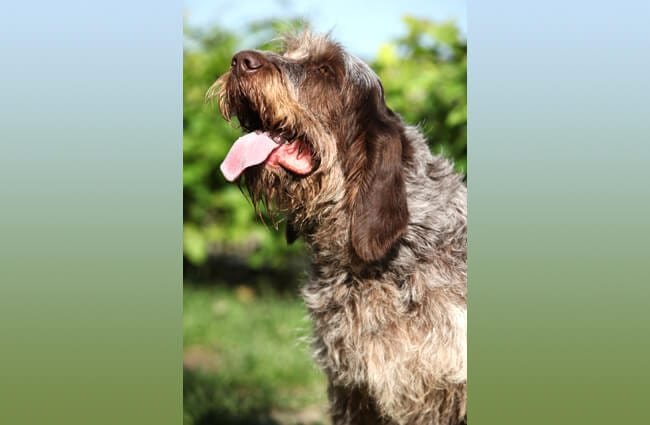
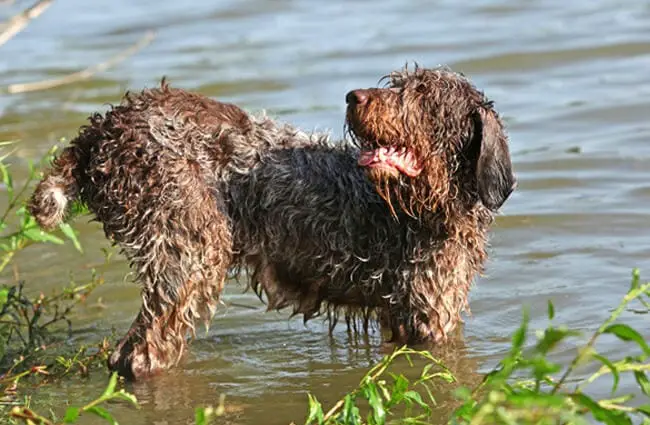
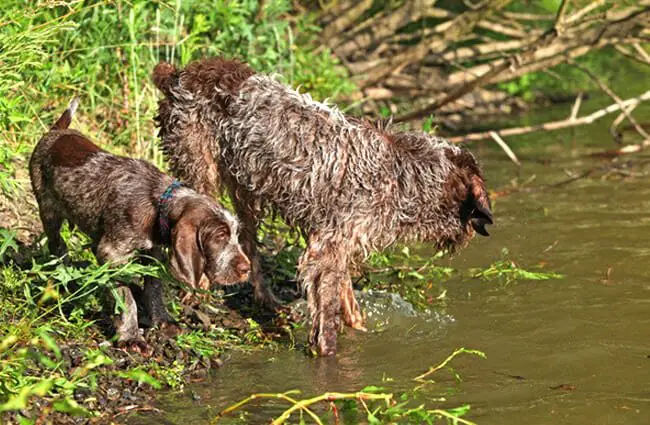
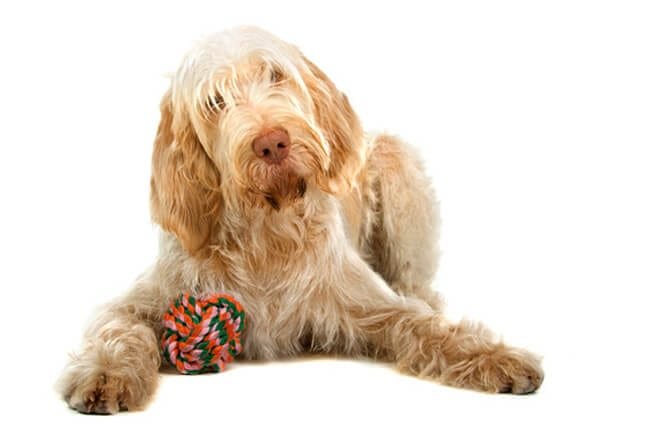
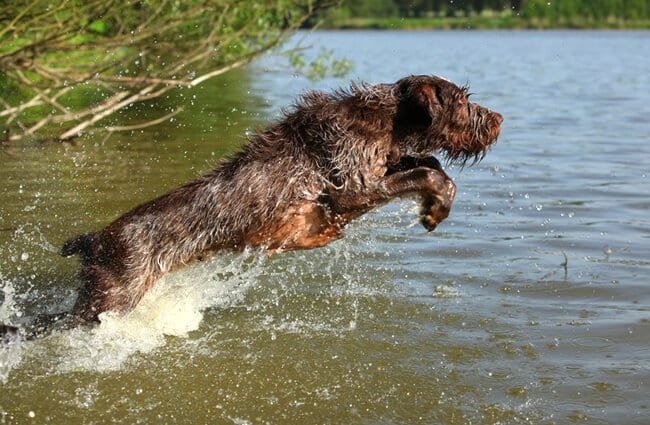
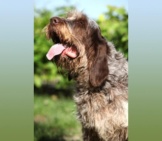
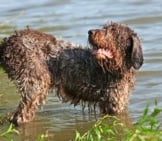
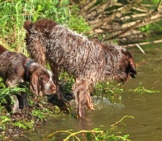
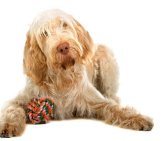
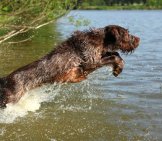
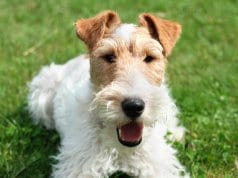
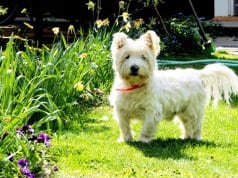


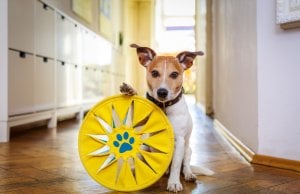
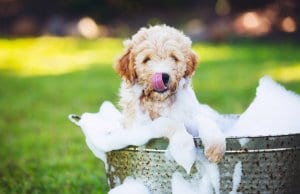

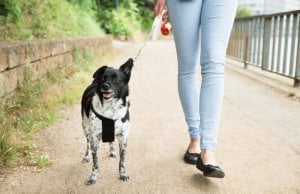

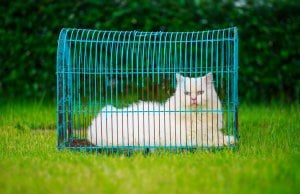
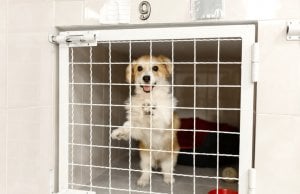

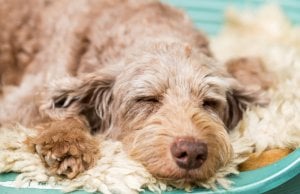
![Red Angus Closeup of a beautiful Red Angus cowPhoto by: U.S. Department of Agriculture [pubic domain]https://creativecommons.org/licenses/by/2.0/](https://animals.net/wp-content/uploads/2020/03/Red-Angus-4-100x75.jpg)

